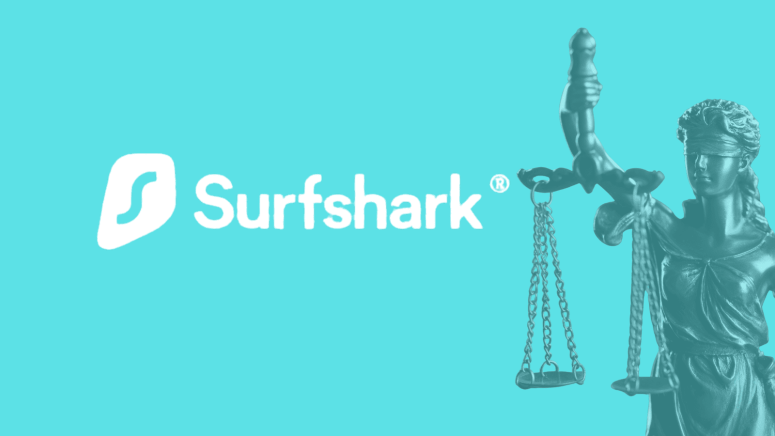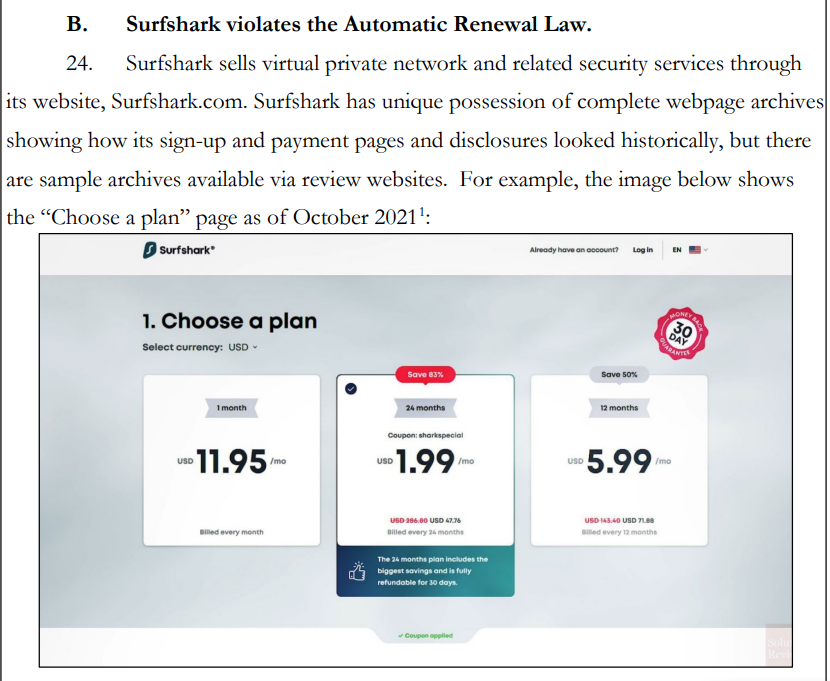
Surfshark Faces Class Action Lawsuit in the US Over Alleged “Illegal” Auto-Renewal Fees
- Lawsuit Filed: California plaintiff claims Surfshark charged unauthorized auto-renewal fees since 2022.
- Legal Basis: Case alleges violations of California Automatic Renewal Law and False Advertising Law.
- Industry Trend: ExpressVPN, NordVPN also face lawsuits; depicting the current VPN scenario.
A California customer has taken VPN provider Surfshark to court, accusing the company of charging him unauthorized subscription renewal fees. The complaint adds to growing legal scrutiny around how major VPN services handle automatic renewals in the United States.
What the Surfhsark US Lawsuit Claims
The class action lawsuit was filed by plaintiff Arvin Garcia in California's Central District Court on July 17, 2025. According to the filing, Garcia initially purchased a two-year Surfshark subscription in May 2020, believing it was a one-time purchase.
However, after his plan expired, Garcia claims Surfshark automatically enrolled him into a recurring annual plan without his consent. He alleges that the company went on to charge him in May 2022, 2023, and 2024 for subscription renewals he did not knowingly authorize.
His lawyers argue these charges violated California’s Automatic Renewal Law (ARL), which requires businesses to:
- Clearly disclose the terms of auto-renewal plans.
- Obtain affirmative consent from consumers before enrollment.
The lawsuit also accuses Surfshark of violating California’s False Advertising Law by promoting plans in a way that allegedly misled users about their auto-renewal nature.
This is not the first time Surfshark has faced similar claims. A separate lawsuit was filed against the provider in 2024, also under California law.
A Wider Industry Problem?
Surfshark is not alone in facing backlash over recurring subscription models. Other leading VPN providers have also been targeted by lawsuits in the US:
- ExpressVPN: Currently facing a class action in California after a June 2025 complaint over similar practices.
- NordVPN: Has been taken to court in at least four US states since April 2024, accused of "illegal and deceptive" auto-renewal practices.
The law firm Wittels McInturff Palikovic, which represents Garcia, has also filed complaints on behalf of NordVPN customers and investigated auto-renewal practices at other VPN providers, including Proton VPN and Private Internet Access (PIA). So far, no lawsuits have been filed against those companies.
What Happens Next
The case against Surfshark will now move through the court system, where judges will determine whether the company violated California consumer protection laws.
These lawsuits highlight growing pressure on VPN companies to rethink their subscription models. While auto-renewals are common across the industry, mounting legal challenges may push providers to consider more transparent and possibly non-renewal options in the future.















